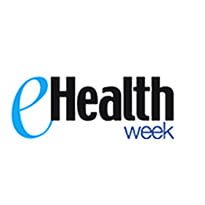The need for transatlantic co-operation on health IT has been described as "critical" by Dr Farzad Mostashari, national co-ordinator, health IT, at the US Department of Health and Human Services.
The EU and US have outlined plans to further strengthen transatlantic co-operation on e-health – focusing on interoperability, standards and workforce IT skills development – to accelerate the uptake of health IT and e-health.
Speaking at a press conference at eHealth Week in Dublin, key EU and US government officials gave further details of a draft memorandum of understanding that was first outlined in December.
Peteris Zilgalvis head of the European Commission’s Digital Agenda Unit for Health and Wellbeing, said: “We are today discussing a formal agreement between the EU and the US to foster co-operation on the interoperability of electronic health records and skills of workforces.
"We are adding a goal of patient mediated exchange – people carrying their health data as they are travelling.”
In the MoU, a commitment was made to accelerate the development and widespread use of internationally recognised standards to support the transnational interoperability of electronic health information.
Dr Mostashari said that the US had made a lot of progress on health IT since the 2009 stimulus act [the American Recovery and Reinvestment Act, passed by the Obama administration which included a commitment to getting electronic patient records into use].
He said it now faced fresh challenges, centred on ensuring the most effective use of electronic systems. “The challenges we now face are in MoU. They are not just about adoption of systems but interoperability.
"They are about how do we engage patient and caregivers to be effective partners, and they are about getting the workforce we need to use these tools to re-engineer care with these tools. We’ve got to the point that these discussions are critical."
Chandra Brown, deputy assistant secretary at the US Department of Commerce, said the move was vital to improve US exports of health IT.
“Health IT is considered to be one of most important areas of our export industry, so we committed to developing international standards and interoperability.”
Bairbre Nic Aongusa, assistant secretary general of the Irish Department of Health, said: “We all face challenges to sustainability of healthcare systems – and ICT can help us achieve the changes needed. It is also a key part of the economy that can be innovative and create jobs.”
She added: “We’ve been talking about ehealth agenda for a long time in Europe but ehealth can represent a huge opportunity for us economically.”
Aongusa said that e-health also had the potential to be an important strand in north-south co-operation in Ireland, with Northern Ireland already a leader in the field.
Dr Doug Fridsma, director of the office of science and technology at the US Department of Health and Human Services, stressed that lack of standards was equivalent to trade tariffs.
“These are amazing economic opportunities in health IT, but we need standards. "It ssed to be it that it was tariffs at the harbour that stopped commerce – now the barriers are regulations and standards.”

